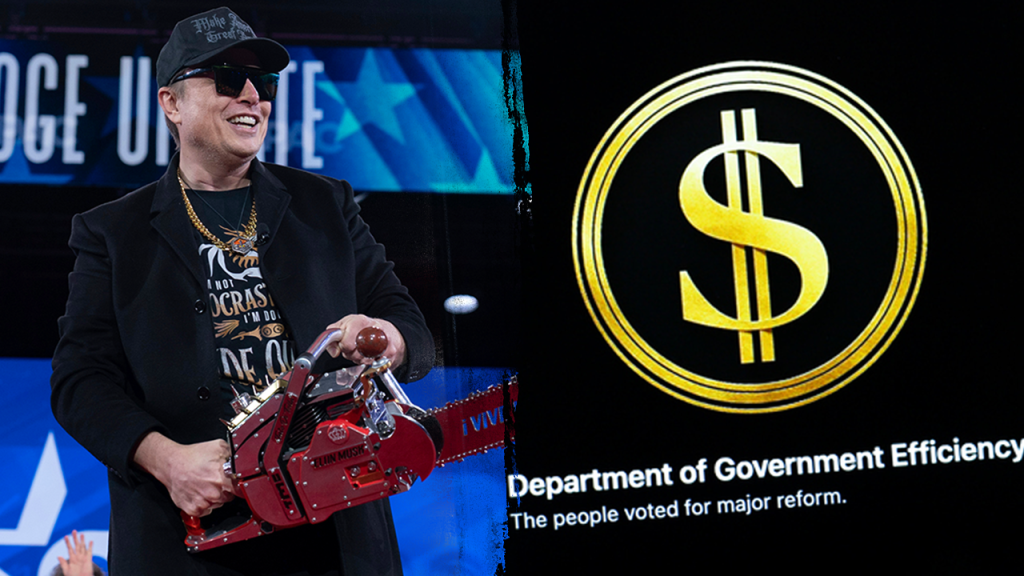The Department of Government Efficiency (DOGE), spearheaded by prominent entrepreneur Elon Musk, announced significant cuts to federal spending by terminating numerous contracts and grants amounting to hundreds of millions of dollars. Over a span of several days, 269 contracts with a total ceiling value of $845 million and expected savings of $255 million were eliminated, as reported by DOGE. This move is part of a broader strategy to enhance efficiency within government operations and minimize what officials have termed wasteful expenditures.
| Article Subheadings |
|---|
| 1) Overview of the Spending Cuts |
| 2) Targeted Grants and Contracts |
| 3) Reaction from Government Officials |
| 4) Implications for Federal Services |
| 5) Moving Forward: The Role of DOGE |
Overview of the Spending Cuts
The measures announced by DOGE reflect an urgent push to alleviate what is perceived as significant government inefficiency. The announcement highlighted that the cessation of contracts would ultimately generate substantial financial savings for taxpayers. Specifically, the department reported eliminating contracts classified as “wasteful,” which accumulated a ceiling value of $845 million and projected savings of upwards of $255 million.
This cutback initiative aligns with efforts across various government branches to reassess and revamp fiscal management practices aimed at enhancing accountability. The nature of these contracts varied significantly, addressing a spectrum of issues from environmental projects to social initiatives. As such, the overarching objective of DOGE is to streamline operations and redirect financial resources toward more effective programs.
Targeted Grants and Contracts
Among the notable eliminations were several specific grants, including a $995,000 allocation intended for a BIPOC (Black, Indigenous, and People of Color) culinary program, and a $625,000 grant aimed at fostering a biodiversity partnership in the Russian Far East. Critics and supporters alike have scrutinized such cancellations, contemplating their broader societal implications.
In addition, a $50,000 consulting contract with the Department of the Interior, which aimed to facilitate collaborative problem-solving, was also terminated. DOGE’s decisions underscore a contentious debate surrounding the prioritization of government spending, particularly on initiatives perceived as socially focused or politically motivated.
Reaction from Government Officials
The announcement of these spending cuts has drawn varied reactions from officials at multiple government levels. Attorney General Pam Bondi noted the elimination of some grants, including a $2 million initiative for “national listening sessions of individuals with lived experience,” which were deemed unnecessary by DOGE. Another program, which allotted $625,000 to research police departments’ LGBTQ liaison services, has similarly faced backlash due to its perceived lack of essentiality in current policing practices.
Many in government and the public discourse are keenly observing how these decisions will unfold, particularly regarding their impact on marginalized communities and areas of social support that former grants targeted. Advocates have expressed concerns about the long-term ramifications of eliminating these programs and their direct impact on those they serve.
Implications for Federal Services
The repercussions of the recent cuts could be felt across various sectors that depend on federal funding. Social programs aimed at providing support to underrepresented groups, as well as biodiversity initiatives, may face setbacks or complete cessation, effectively limiting their reach and operational capacity. This scenario raises questions about the sustainability of these essential services, especially as federal resources become increasingly constrained.
Stakeholders in the community and service sectors are analyzing how to adjust to the new financial landscape shaped by DOGE’s aggressive spending cuts. Furthermore, this shift could necessitate a reallocation of resources among remaining programs, prompting organizations to adapt strategies to minimize disruption to their services.
Moving Forward: The Role of DOGE
As the Department of Government Efficiency continues to evaluate contracts and grants, its role is increasingly positioned as a critical player within the federal landscape. Led by Elon Musk, DOGE is advocating for a paradigm shift in how government spending is approached, seeking to eradicate inefficiencies and promote fiscal diligence.
Moving forward, DOGE plans to maintain its scrutiny of federal expenditures, potentially exploring further reductions in grants and contracts that fail to deliver discernible benefits. This ongoing assessment reflects a broader legislative and social ambition to enforce fiscal prudence and transparency, which proponents argue is essential for enhancing government performance and taxpayer accountability.
| No. | Key Points |
|---|---|
| 1 | DOGE has eliminated 269 contracts with a total ceiling value of $845 million. |
| 2 | Federal spending cuts include numerous grants aimed at various social initiatives. |
| 3 | Responses to the cuts have varied, with some officials supporting and others criticizing the approach. |
| 4 | There are concerns regarding the sustainability of federal services previously funded by these grants. |
| 5 | DOGE is poised to remain active in controlling government spending and enhancing efficiency. |
Summary
The recent initiatives undertaken by the Department of Government Efficiency mark a significant chapter in federal oversight and accountability. By eliminating contracts deemed wasteful, DOGE aims to reshape government fiscal policy and promote a culture of efficiency. However, the practical implications of these cuts may resonate across various service sectors, sparking dialogue about the balance between fiscal responsibility and necessary support for vulnerable populations.
Frequently Asked Questions
Question: What is the purpose of the Department of Government Efficiency (DOGE)?
DOGE is aimed at enhancing the efficiency and accountability of federal spending by identifying and eliminating wasteful contracts and grants.
Question: What kind of contracts has DOGE terminated?
DOGE has terminated various contracts, including those related to social programs, environmental initiatives, and consulting services, with significant financial implications.
Question: How are officials and the public reacting to the spending cuts?
Responses to the spending cuts are mixed, with some officials supporting the initiatives as necessary for accountability, while others express concern over the impact on essential services for marginalized communities.
